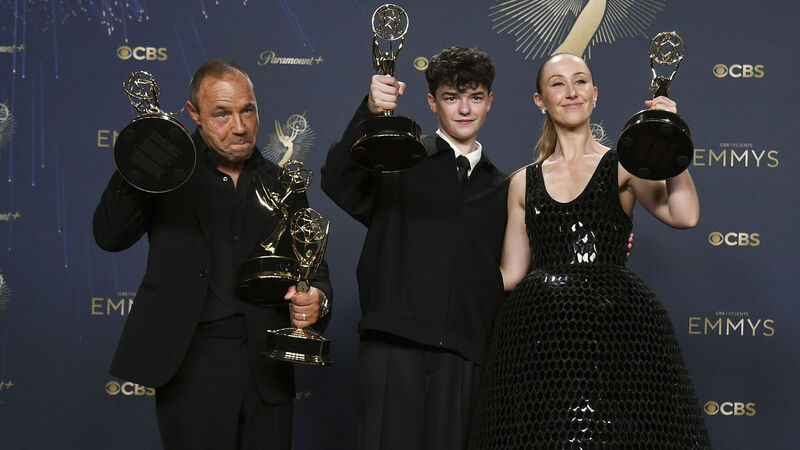Sarah Harte: Ireland's new counselling services for young men are badly needed

(Left to right) Stephen Graham, Owen Cooper, and Erin Doherty who starred in 'Adolescence' for which they won Emmy Awards recently. The Netflix drama had us hotly discussing what goes on in the minds of disaffected boys and who might be influencing them. Photo: Richard Shotwell/Invision/AP
The actor Stephen Graham has won an Emmy for his lead role in .
In March, the Netflix drama that he co-created had us hotly discussing what goes on in the minds of disaffected boys and who might be influencing them. Graham has highlighted the challenges faced by men and boys. He has also spoken about a past suicide attempt.















